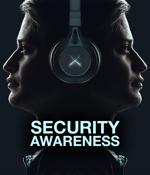Security News

Their behaviors online are risky at best and are putting them at risk of cybercrime. Aura hopes to help solve this problem for consumers by providing resources, products and guidance on how to keep your identity, finances and devices safe from online threats." Many people believe they will feel about the same or even less secure in 2030 than they feel online today.

"Digital collaboration" and "Critical thinking" are among the modern skills workers need for the post-pandemic economy, according to a new report. Technology skills Digital collaboration - less than half of workers have been given sufficient training on relevant coworking tools.

85 percent of the small- to medium-sized enterprises in the UK are familiar with GDPR, but more than half are still not cleaning their data and therefore not adhering to the GDPR's legal requirements, a REaD Group survey reveals. The survey of 1,110 SMEs also revealed that only 40 percent hold their customer and prospect data in a CRM or other database: a surprisingly low figure given that businesses need to maintain contact with their customers for sales and marketing purposes, and never more so than over the past 15 months.

With 30+ years of research and in-house training experience, ESET delivers a top-tier experience suitable for workers at all levels of your organization. ESET Cybersecurity Awareness Training is specifically designed to educate your workforce-because human error is cited as a major contributing cause in 95% of all breaches.

Even with more businesses rolling out staff security awareness training programs to combat evolving cyber threats, over 90% of data breaches still stem from human error. Training courses are wrongly seen as a silver bullet - Regular training is vital for helping employees strengthen their security behaviour, but computer-based courses are just one tool for tackling human cyber risk.

In order to protect themselves and your business against phishing campaigns, malware and other types of attacks, your workers should have a certain awareness of cyber incidents and more importantly security best practices. Automatically expecting your fellow workers to become knowledgeable enough about cybersecurity to help combat attacks is foolhardy, unless you provide them with the right training.

DeltaNet International announced the availability of its Phishing Simulator, to help organizations strengthen their cybersecurity awareness training against phishing attacks. The phishing simulation tool can be used simply to test the susceptibility of an organization from falling victim to a phishing attack, but when combined with follow-up training to close knowledge and risk gaps, users can experience true added value.

Arctic Wolf launched Arctic Wolf Managed Security Awareness, a radical new approach to security and awareness training that helps organizations build cyber resilience against social engineering, phishing attacks, and credential theft. Arctic Wolf is the first managed detection and response vendor to offer a comprehensive, fully managed, security awareness solution natively from its security operations-focused Arctic Wolf Platform.

Traditional employee risk mitigation efforts such as security awareness training and phishing simulations have a limited impact on improving employees' real-world cybersecurity practices, according to Elevate Security and Cyentia Institute. The report examined malware, phishing, email security and other real world attack data and found that while security training results in slightly lower phishing simulation click rates among users, it has no significant effect at the organizational level or in real-world attacks.

Making sure employees have a high level of knowledge around how to handle email securely at home or in the office is essential, but while the IT team may understand how important cybersecurity is, other employees may need to be convinced. Here's how to get employees invested in security awareness training in five simple steps, according to Mimecast.